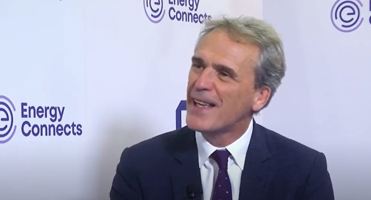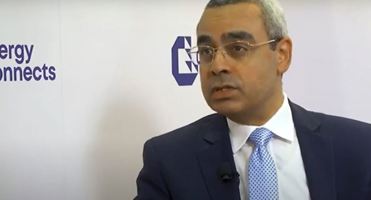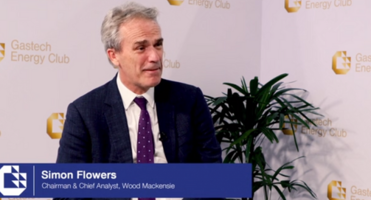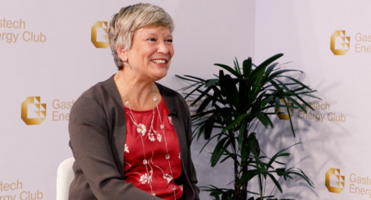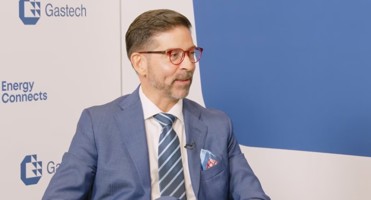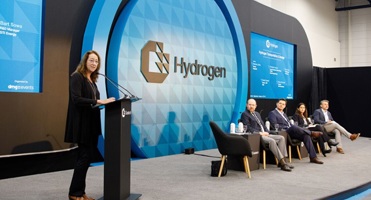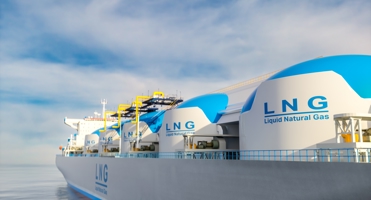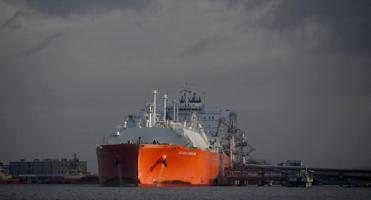Woodside Energy’s recent decision to move forward with its Louisiana LNG export facility, one of several major US projects adding over 90 million tonnes of LNG shipping capacity this year, underscores a fundamental reality: in the global effort to maintain a balanced resource diet, LNG’s flexibility and reliability is not just fuelling the present but shaping the future of energy security.

Even amid geopolitical shocks, changes in policy and shifting trade dynamics, industry investment in LNG continues to accelerate, reflecting confidence in its unique role in the world’s energy mix.
The global need for energy security has never been more significant. The world is racing to decarbonise and diversify with renewables, nuclear and biofuels, but while these sources are vital ingredients for a stable and prosperous future, they are not always able to provide a balanced baseload on their own.
Since the wind doesn’t always blow and the sun doesn’t always shine, we must ensure our energy diet always remains complete and nourishing. This is where LNG stands out for its proven ability to deliver security and adaptability, acting as the essential foundation that supports growth and stability worldwide.
As highlighted at key industry event Gastech 2024 in Houston, a one-size-fits-all recipe for the energy transition is not only unrealistic, but risks unbalancing both security and affordability.
During the event, industry leaders such as Peter Clarke, senior vice president for global LNG at ExxonMobil, emphasised that the needs of developing and advanced economies cannot be identical – a message certain to resonate again at Gastech’s upcoming Milan edition in September.
If we ignore these differences and pursue a rigid, renewables-only plan, we risk deficiencies manifesting as high prices and volatility. Therefore, the sector must embrace a multi-dimensional approach that leverages a full spectrum of energy ingredients and resources.
After all, true energy security and affordability rest on a balanced, adaptable mix, and not all energy sources can provide the complete sustenance required. LNG’s inherent flexibility and resilience are indispensable, supporting the integration of renewables and new technologies, while ensuring the energy transition remains secure, reliable, and accessible for all.
Countries from Japan to Morocco are moving to make LNG a central foundation of their energy strategies. In Japan, ENEOS Holdings has recently announced that it is ramping
up LNG investment to ensure stable, affordable supply. Additionally, Morocco’s move last month to establish an LNG terminal highlights a broader global trend: governments recognise LNG’s role in delivering stability in the energy sector.
But this is not just about energy security for its own sake. Shell’s LNG Outlook 2024 has projected demand will rise by over 50% by 2040, and it is clear that emerging markets are turning to LNG to fuel growth and development for their citizens.
Sceptics may label LNG as just another fossil fuel, arguing it delays the shift to renewables. But this view ignores LNG’s critical contribution to emissions reduction and system reliability right now. Replacing coal with LNG has enabled countries like South Korea and Japan to cut power sector emissions by up to 50%, while the US has seen substantial progress from its switch to gas.
These are not incremental gains – they are immediate, measurable steps toward climate goals, achieved without sacrificing energy security. Therefore, LNG is not an obstacle to the energy systems transformation, but a vital enabler of it.
Moreover, LNG’s dispatchability makes it the perfect complement to renewables, providing grid stability when wind and solar output fluctuates. Across the US, gas-fired plants have prevented blackouts and enabled deeper renewable integration, proving that LNG is an enabler, not a competitor of clean energy.
This is further reinforced by the emergence of Artificial Intelligence as an essential tool for progress and efficiency in the energy industry and beyond, but also as a significant contributor to rising consumption trends. Natural gas and LNG are the only resources that can match the escalating demand of AI data centres, and are thus uniquely positioned to facilitate the continued integration of AI-powered decarbonisation solutions across the energy value chain.
In nearly every way, innovation is rapidly enhancing LNG’s environmental profile. Projects like ExxonMobil’s LaBarge in Wyoming and Shell’s Quest in Canada are capturing millions of tonnes of CO₂ annually, demonstrating the practicality of low-emission gas operations.
Methane emissions are being tackled with cutting-edge satellite monitoring and infrared imaging, while digital optimisation at terminals such as Cheniere’s Sabine Pass and Corpus Christi are improving efficiency and reducing fuel use. These advances are already in commercial use, delivering both environmental and economic benefits.
The industry is also aligning with the demands of sustainability-focused investors and policymakers. Long-term contracts now often include emissions tracking and reduction targets. QatarEnergy’s North Field expansion, which incorporates carbon capture and solar power, sets a new standard for responsible LNG development.
These investments are making LNG not just a bridge to a low-carbon future, but a foundation for a more resilient and equitable energy system.
Perhaps most importantly, LNG’s market flexibility is a bulwark against geopolitical shocks. With supply diversification from the US, Qatar and other producers, and with
robust infrastructure and flexible contracts, LNG can be delivered wherever and whenever it is needed most. This optionality is critical for economic stability and energy security in an unpredictable world.
No single energy source can meet the world’s needs alone. The future of energy security is about balance, with renewables, nuclear, hydrogen, biofuels and LNG working together. But there can be little doubt that LNG has a strategic role to play, one that is continuously being enhanced by new innovations and advancements.
As nations confront rising demand, pressure for lower emissions, and new geopolitical realities, LNG’s combination of flexibility and reliability makes it an indispensable tool for countries seeking security and growth in a rapidly changing world.


























